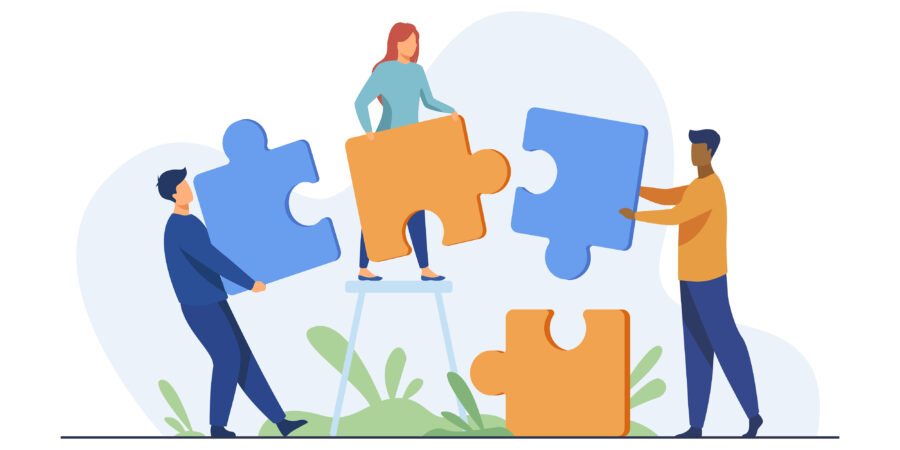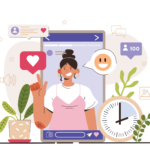To keep developing your business, you need to work with people who aren’t like you
It’s easy to run a business when everyone supports you, shares your point of view, or applauds your every single move. But this road leads to nowhere. If you limit your relationships to people who are your exact copy, your business won’t grow. You won’t grow.
Sooner or later, you’ll need to figure out how to meet in the middle: how to listen, understand, and collaborate regardless of the mutual differences.
For me, the biggest stumbling block was to learn to work with people who are driven by perfection. I used to push them to deliver their part of the project, they would pull back to ensure that every detail is top-notch. Although there’s nothing wrong with being detail-focused, sometimes you need to bear with the good enough results without endlessly extending the deadlines. My perfectionist colleagues wouldn’t agree that done is better than perfect, so there was a constant tension. Until I learnt to adopt their point of view.
If you also struggle to find a balance when working with people who are not like you, here are some key steps that can help you ensure a smooth collaboration:
1. Focus on what you have in common
Whether it’s a clash between different personality types, cultural backgrounds, or skill sets, you can always find a common ground to make your relationship healthy. Maybe you both have the same goals, maybe you’re both willing to complete the project on time, or maybe you’re both motivated to serve your customers in the best possible way.
Find out what is it that you and your partner want to achieve as a team, not as an individual. This is the first step to move your focus off your differences and put it back to what really matters.
2. Adopt a growth mindset
Once you find a common ground, it’s time to adapt to your partner. Waiting for your colleague to change will only lead to frustration. Instead, adjust your own style. Try to understand your colleague who acts in a too logical, too detailed, or too disorganized way. That person who constantly asks for more time probably doesn’t do it to delay your project on purpose but prefers to begin his task with a thorough research to ensure high quality. Maybe your partner is pushing with her ideas because she is emotionally attached to her work.
Try to read between the lines, and don’t let emotions influence your behaviour. Act with respect and courtesy, focusing on the strengths of your colleague. This will help you learn more from each other and increase the chances for successful collaboration.
3. Communicate clearly
Most tensions arise because of the lack of communication. Maybe your partner has different assumptions, maybe your message wasn’t clear enough, or maybe it didn’t reach your colleague on time. Recap your discussions, follow up, and double check if anything is ambiguous. Clear communication is a key to success, especially if you cooperate with people with different work style, expertise, or personality.
Confirm in an-email what you had agreed in your conversation and make sure your partner has no doubts about the project. This will help you avoid misunderstandings, missed deadlines, and lost opportunities.
4. Ask the right questions
Sometimes disagreements lead to real innovations. If you and your business partners view things differently, try to encourage a healthy debate. It might be challenging to remain non-defensive and non-judgemental, so help everyone stay in control by asking open-ended questions and actively listening to the replies.
In this way, your colleagues will feel respected, and your opposing views will lead to better ideas and better results.
Working with people who are different from you can help you become more creative, flexible, and open-minded. Once you embrace the differences and find a common ground, you’ll be able to find better solutions, achieve better outcomes, and eventually stimulate your business growth.


